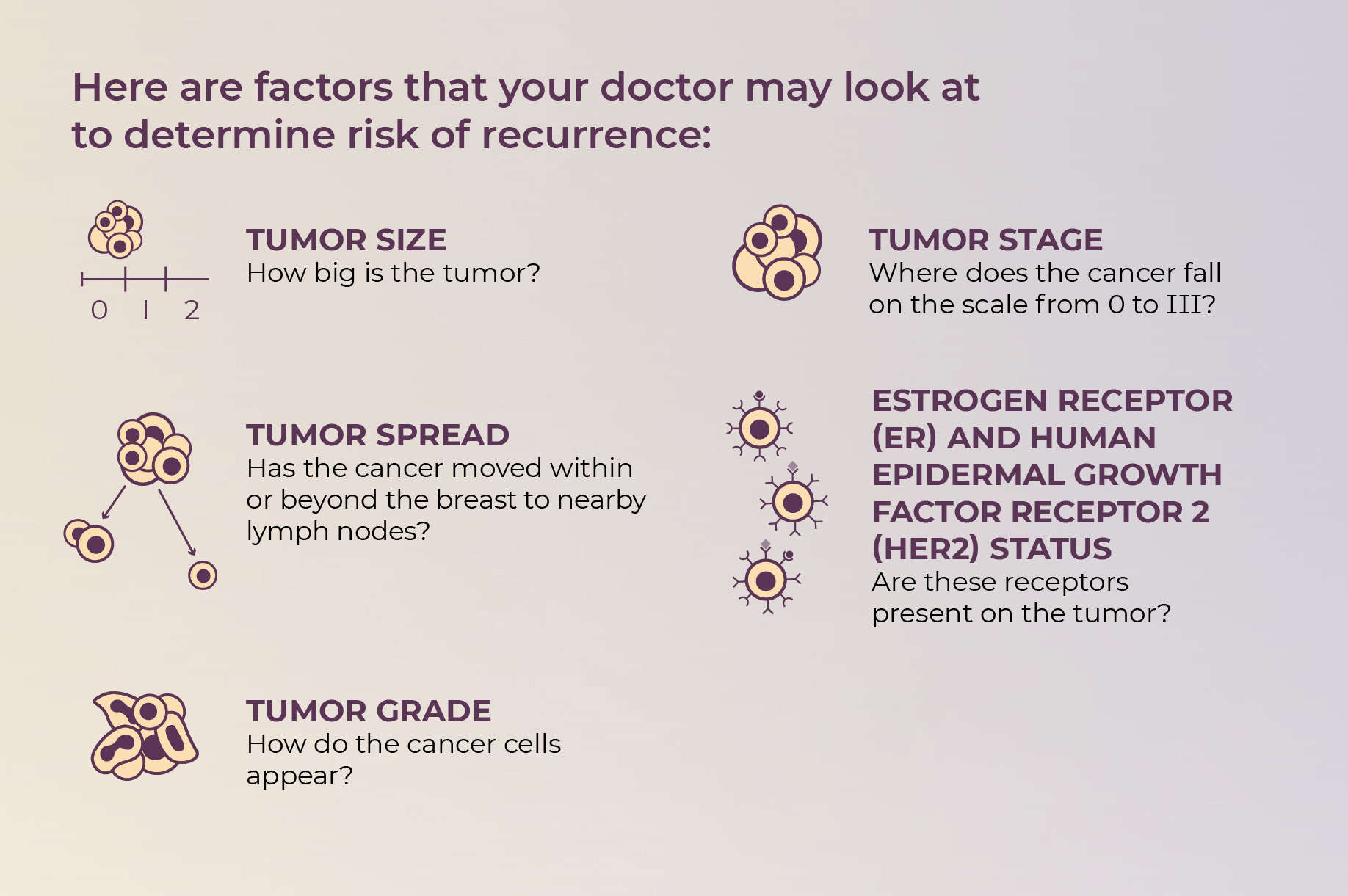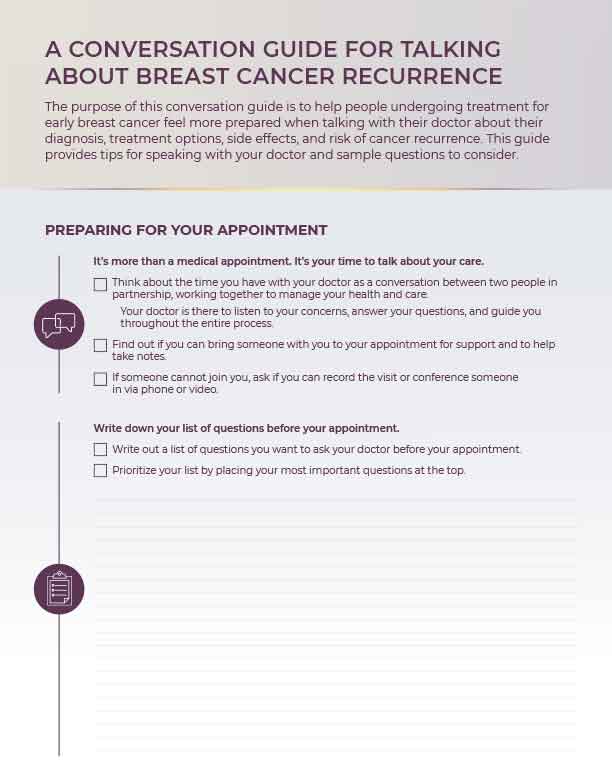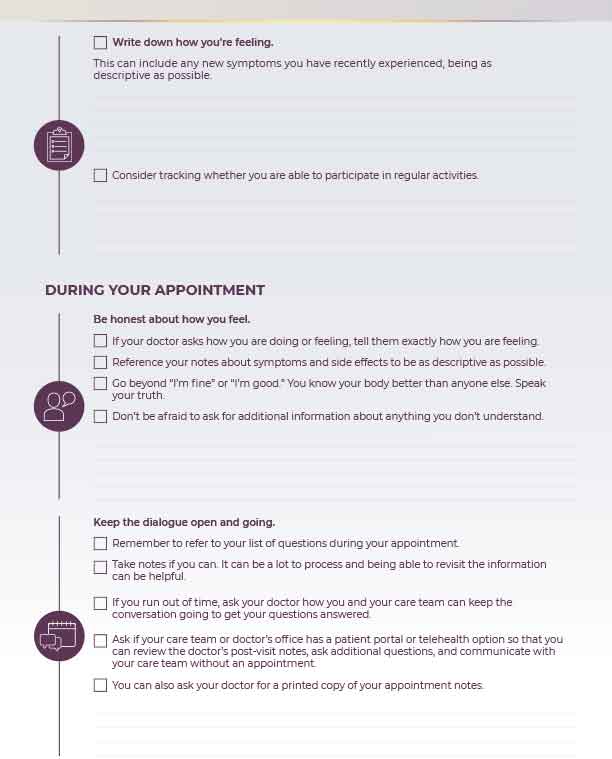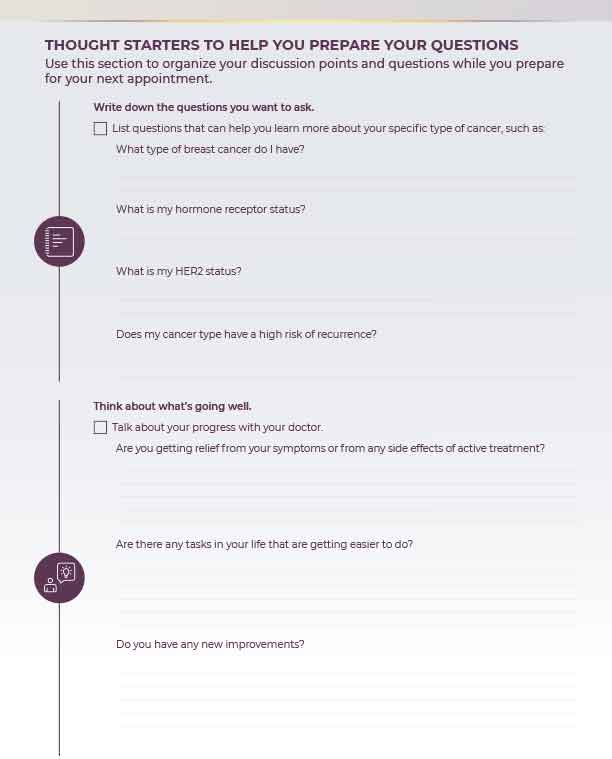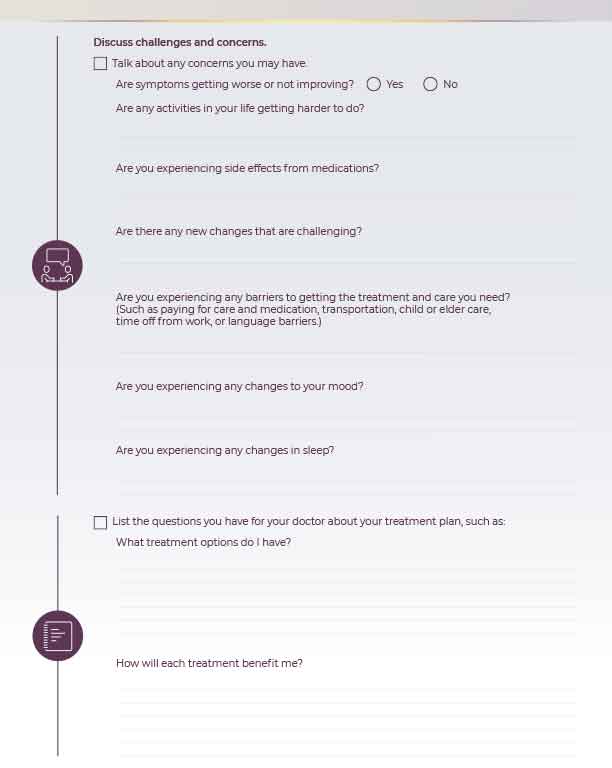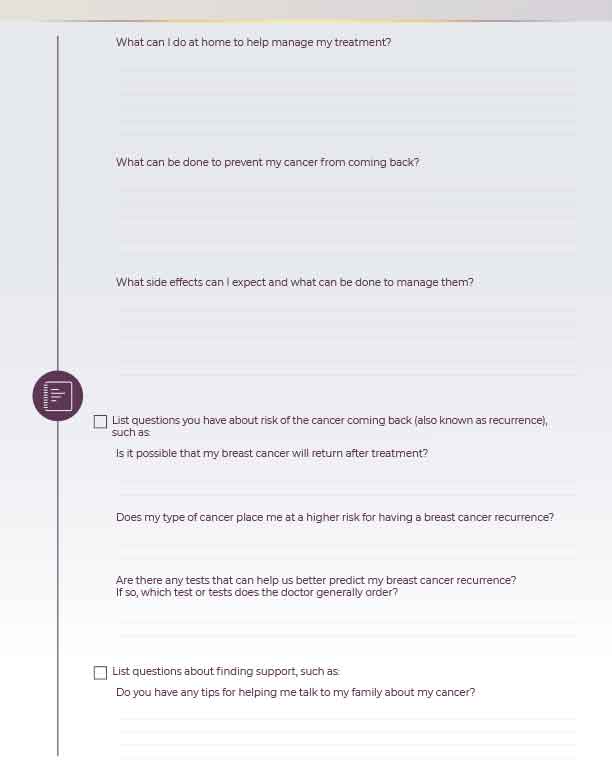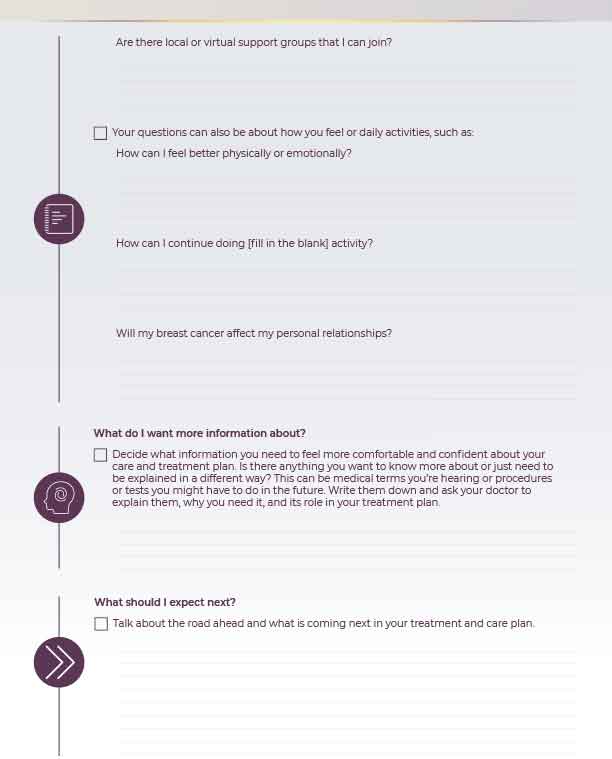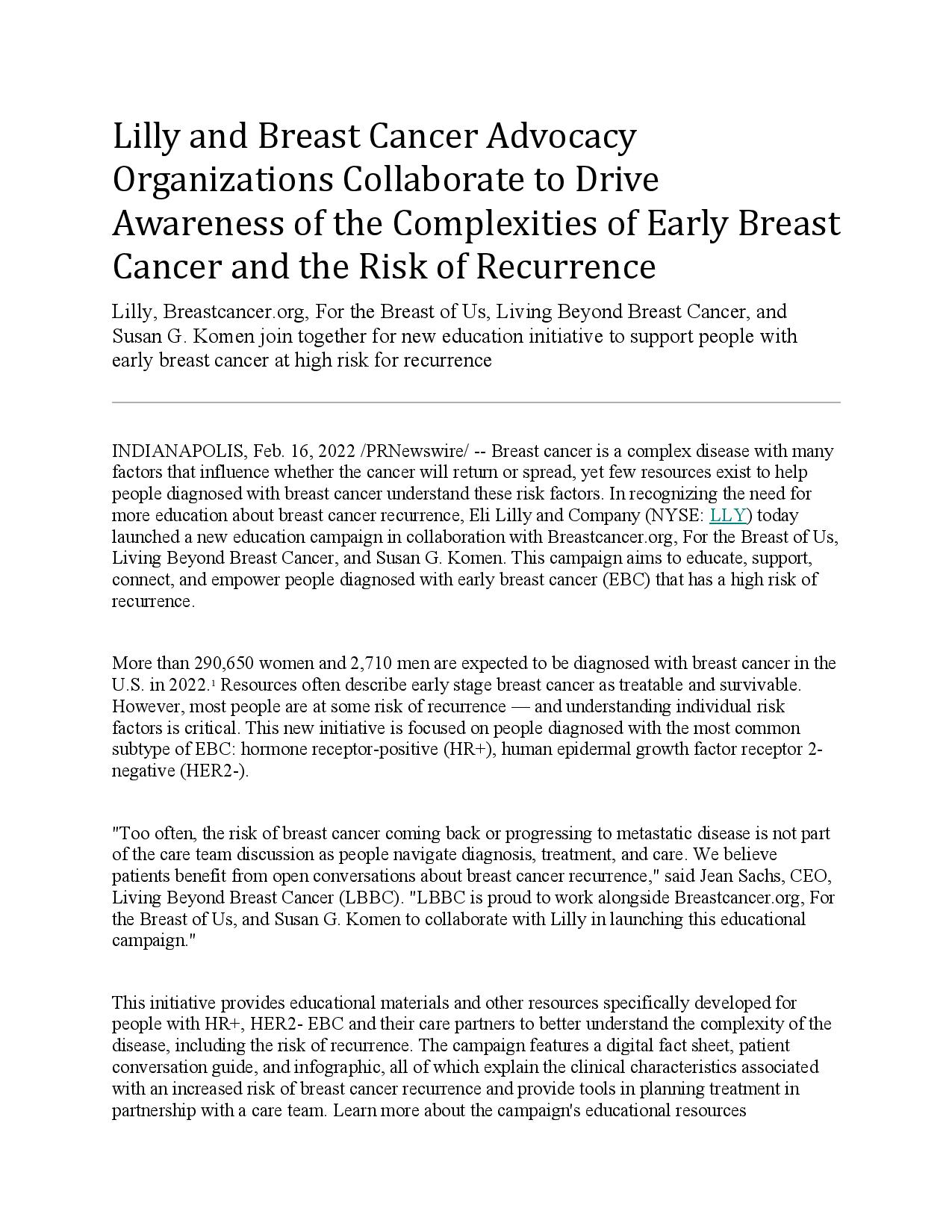
UNDERSTANDING THE COMPLEXITIES OF EARLY BREAST CANCER AND THE RISK OF RECURRENCE
More than 297,790 women and 2,800 men are expected to be diagnosed with breast cancer in the U.S.in 2023.1 Early breast cancer (EBC), which is found in the breast and possibly nearby lymph nodes but has not spread to other parts of the body, is often described as treatable and survivable. However, most people are at some risk of recurrence — and understanding individual risk factors is critical.2,3,4
There are different types of EBC, and your doctor will use the EBC type to help determine treatment. This resource helps explain the clinical risk factors of recurrence for people diagnosed with the most common subtype of EBC: hormone receptor-positive (HR+), human epidermal growth factor receptor 2-negative (HER2-).
“When people are diagnosed with early breast cancer, the initial focus is understandably on selecting and undergoing treatment that will prevent or delay cancer recurrence. However, the risk of developing recurrence may be difficult to comprehend and patients can benefit from additional resources to help understand or augment the information provided by their doctors. This initiative provides patients with comprehensive information on the factors that may affect the risk of breast cancer recurrence,” said Stacy Moulder, M.D., Associate Vice President and Global Development Lead, Oncology Late Phase Development, Loxo@Lilly.
Understanding your diagnosis and type of EBC can help you better understand treatment options.
Breaking Down Risk Of Breast Cancer Recurrence
There are many factors your doctor will use to determine cancer type.
- Your doctor will receive a pathology report, which is written by a pathologist each time tissue is removed to check for cancer.
- It is important to work with your doctor to learn how to read and understand the report, as well as how it will be used to create your treatment plan.
- The most common type of breast cancer is called HR+, HER2-. That means the cancer has hormone receptors (HR) but does not have human epidermal growth factor receptor 2 (HER2-).
While getting a breast cancer diagnosis can be scary, early breast cancer is treatable and does not return for most people.2 However, there are factors that might increase the risk of recurrence.2,3 Understanding these clinical risk factors of recurrence and what they mean is critical. This knowledge will help you have more informed conversations with your healthcare team about your treatment plan.
What Can I Do to Lower the Risk of Recurrence?
Talk to your healthcare provider to learn more about your diagnosis and the risk of breast cancer recurrence. Understanding the different characteristics of cancer early on may help you have more informed conversations with your doctor about treatment options.
It is important to remember that it is not your fault if the cancer returns. Talk to your healthcare team about the type of breast cancer you have been diagnosed with and its risk of recurrence.






